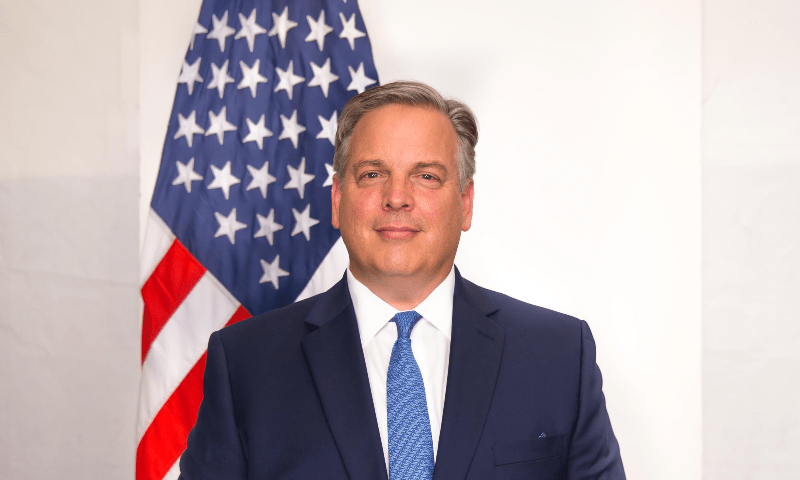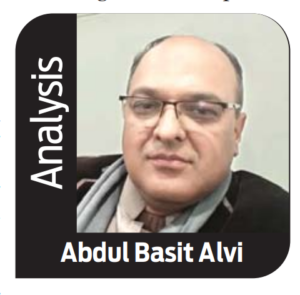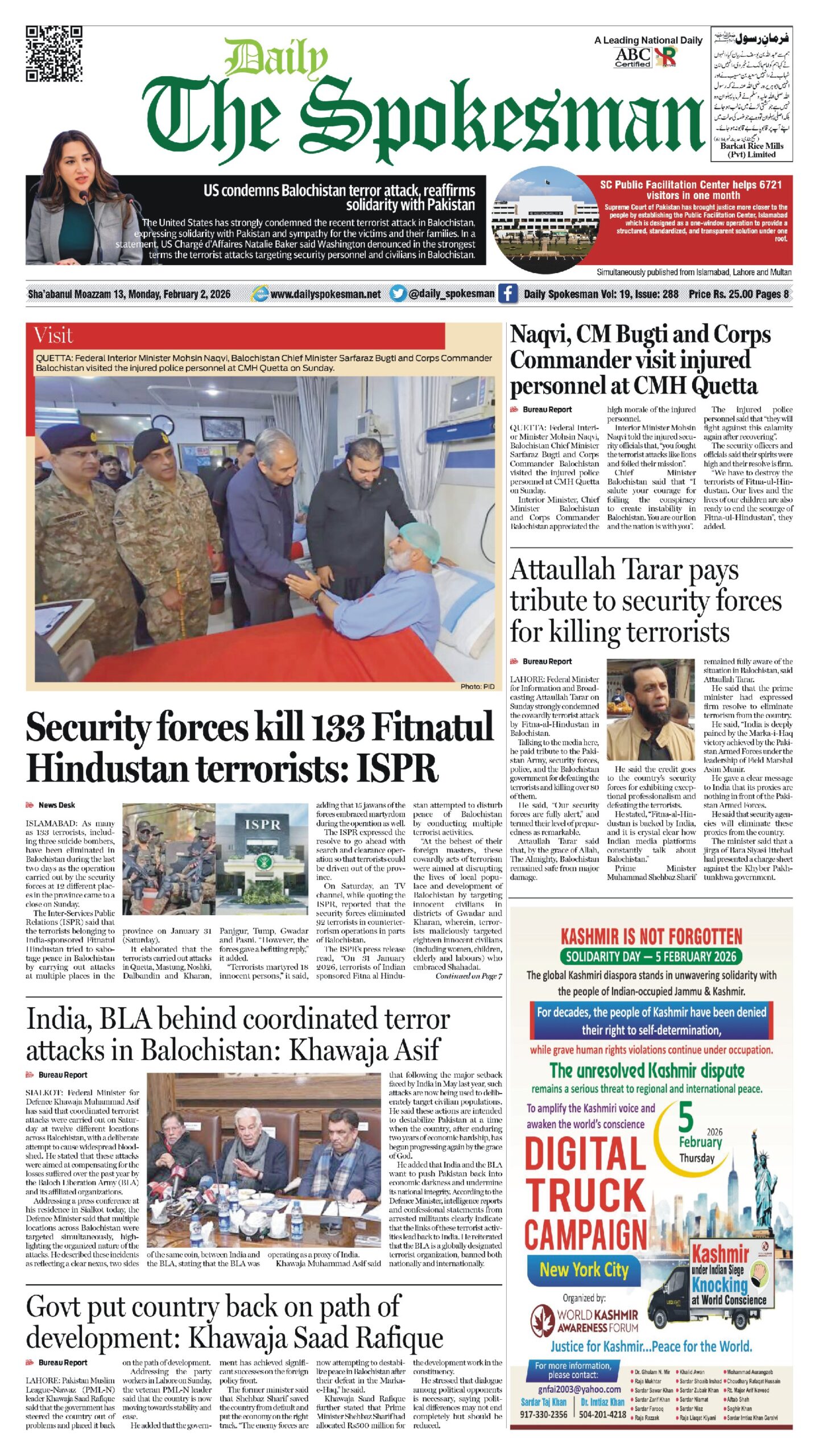

The relationship between the United States and Pakistan has been marked mutual cooperation and respect over the years. One of the fundamental aspects of this relationship has been US assistance to Pakistan, which has played a pivotal role in addressing a range of challenges, from economic development and education to counterterrorism efforts.
The United States and Pakistan’s partnership dates back to Pakistan’s creation in 1947. During the Cold War, Pakistan emerged as a significant ally in the region due to its strategic location and support for US efforts against the spread of communism. This alliance resulted in substantial military and economic assistance to Pakistan. The partnership between the US and Pakistan gained renewed importance after the September 11, 2001 terrorist attacks. Pakistan became a crucial partner in the global war on terror, assisting the US in various ways, including providing logistical support, intelligence sharing, and facilitating the US-led coalition’s operations in neighboring Afghanistan. In return, Pakistan received substantial assistance from the US, both in military and economic forms. A considerable portion of US aid to Pakistan has been allocated for counterterrorism efforts. The United States has provided military assistance to enhance Pakistan’s capacity to combat militant groups, such as the Taliban and Al-Qaeda, operating within its borders. This cooperation has led to several successes, including the capture of high-value targets and the dismantling of terrorist networks. US economic assistance to Pakistan has played a pivotal role in promoting stability and development in the region. US-funded programs have targeted various sectors, including education, healthcare, infrastructure, and agriculture. These investments have not only improved the living conditions of millions of Pakistanis but have also laid the groundwork for sustainable economic growth. One of the key areas of US assistance has been in education and healthcare. The United States has supported initiatives aimed at improving access to quality education and healthcare services for Pakistan’s citizens. Scholarships, school construction, and healthcare facilities have been among the tangible outcomes of this collaboration. US aid has also been instrumental in funding critical infrastructure projects in Pakistan, including the development of transportation networks, energy generation facilities, and water resource management. These investments have contributed to Pakistan’s economic development and improved the quality of life for its people.
The U.S. and Pakistan have worked together for almost 75 years on issues that are important to both nations, including energy, economic growth, peace and inclusion, education, and health. USAID’s current country development cooperation strategy for Pakistan focuses on fostering a more stable, peaceful and prosperous country. To achieve this, USAID is partnering with the Government of Pakistan to expand the writ of government along the Afghanistan-Pakistan border region, promote more peaceful communities in key areas, increase private-sector led, inclusive economic growth and strengthen global health security capacities. This work directly supports Pakistan’s development aspirations, as outlined in Pakistan Vision 2025, and its journey towards sustainable, self-reliant growth and development. US is currently assisting Pakistan in several projects including Merit and Need Based Scholarship Program, Sindh Basic Education Project, U.S. Pakistan Science & Technology Cooperative Program, Women’s Hostel Project, Centers for Advanced Studies Program, Improving Education Quality etc.
In addition to long-term development assistance, the United States has consistently provided humanitarian aid to Pakistan during times of crisis. This support has been vital in responding to natural disasters, such as earthquakes and floods, as well as addressing the needs of vulnerable populations. Looking ahead, the future of US aid to Pakistan will be influenced by evolving geopolitical dynamics, regional stability, and security concerns. As Afghanistan undergoes significant changes, Pakistan’s role in the region will remain vital to US interests. US assistance to Pakistan has played a pivotal role in shaping the bilateral relationship between the two countries. This partnership remains crucial for addressing regional security challenges, fostering economic development, and promoting stability in South Asia. As both nations navigate the complex geopolitical landscape, continued cooperation and a commitment to transparency and accountability will be essential to ensuring a mutually beneficial relationship for the United States and Pakistan.
In this context of mutual cooperation and assistance, the US Ambassador to Pakistan Donald Blome conducted week long private visit to GB from 18 – 25 Sep 23. Visit was conducted under most congenial and serene environment. The ambassador was well received in the area & interacted freely with locals. For initial part of the visit, ambassador was accompanied by Mr Abdul Basit (coordinator for UNDP in GB). Smooth conduct of a high level dignitary’s visit not only indicates peaceful environment prevailing in scenic & majestic GB but the visit underlined growing convergence between Pakistan & USA where the ambassador felt free & remained indifferent to baseless propaganda of India on GB. It provided opportunity to US Ambassador to see for himself, after meeting locals, notables & human rights activists of the area and witnessing progress of developing projects. This visit served to further strengthen Pak – US relations and will promote tourism in scenic GB.
The American embassy cleared that the purpose of the trip was to explore opportunities for strengthening the region’s climate resilience. The embassy spokesman, Jonathan Lalley, told a leading newspaper that all publications, including the New York Times, had recently highlighted that Pakistan was one of the world’s most vulnerable countries when it came to climate change. “Gilgit and Hunza Valley are unique mountain and glacial ecosystems that feed the Indus River Valley. The region is particularly vulnerable to climate change impacts,” he said, making it clear that Ambassador Blome’s trips were coordinated closely with the Pakistani government.
The said visit of US ambassador was criticized by India and some internal Anti- State elements on Social Media. No doubt, Social media has become an integral part of our daily lives, providing us with a platform to connect, share, and engage with others globally. While there are several advantages of using social media, it also comes with its fair share of drawbacks. There are many Pros of Social Media. Social media allows us to connect with friends, family, and acquaintances regardless of geographical boundaries. It provides a platform to stay in touch, share updates, and maintain relationships, fostering a sense of community. Social media is an excellent source of news and information. It enables users to stay updated on current events, access educational content, and engage in meaningful discussions. Social media platforms give individuals the opportunity to express themselves creatively by sharing their artwork, writing, music, and more. It allows users to showcase their talents and gain recognition from a wider audience. Social media has transformed the way businesses operate. It provides a cost-effective and accessible means for businesses to promote their products or services, engage with customers, and expand their reach to a global audience. Social media allows individuals with shared interests or experiences to come together and form communities of support. It serves as a platform for individuals to find like-minded people and seek advice or encouragement. Along with benefits there are many drawbacks of Social Media as well. One of the significant drawbacks of social media is the potential invasion of privacy. Users may unknowingly disclose personal information, which can be exploited by cybercriminals or advertisers. Additionally, social media platforms themselves may collect and utilize user data for targeted advertising. Social media can provide a breeding ground for cyberbullying, harassment, and online abuse. Users may face public shaming, online trolling, or offensive comments, causing significant emotional distress. The addictive nature of social media can lead to excessive usage and dependence, impacting mental health. Constant comparison with others, seeking validation through likes or comments, and exposure to unrealistic standards can negatively affect self-esteem and contribute to anxiety or depression. Social media has become a breeding ground for the rapid spread of misinformation and fake news. Due to the ease of sharing content without proper fact-checking, false information can quickly go viral, leading to confusion and division among users. Social media can be highly time-consuming, leading to procrastination and decreased productivity. Excessive usage can interfere with work or study schedules, leading to missed opportunities and a decline in overall well-being. Social media has undoubtedly revolutionized the way we communicate and interact with others. It has bridged geographical gaps, enhanced information sharing, and created unique opportunities. However, it is crucial to be aware of the potential pitfalls such as privacy concerns, cyberbullying, addiction, the spread of misinformation, and productivity loss. By understanding and mitigating these risks, individuals can make the most out of social media while maintaining a healthy balance in their lives. Singaporean writer ‘Jess C Scott’ writes that “the people are the sheep and the media are the shepherds”.
The media is now the social media, from the creation of destruction to its spread, the social media is now the medium, and it is the one that plasters the wall. It was about an incident where official Twitter account of the government of Pakistan in Gilgit which was not opened in the mobile of a half “social worker”, that “this account is inaccessible in India”. He took a screenshot and put it on Twitter. After seeing, many people came forward with the comments that Gilgit has been included in India; look at the influence of India etc etc. The real problem was internet and mobile location. Repeated use of VPN tampers with your location algorithm. One after the other and then the third and fourth, all those who were using VPN kept apologizing for opening a Twitter account of the government of Pakistan saying that this account cannot be opened in India. Many others joined this campaign out of curiosity and then a reliable and serious organization/ newspaper like Dawn made the news and ran it. When the facts on the ground were known and the truth came out, then the lie was on the air. The question is when Pakistani internet can work at the location of Gilgit up to the Line of Control, why not in Gilgit itself? Even in Islamabad, if you will use the Internet at the location of India, then all the accounts of the government of Pakistan will not be opened which India has restricted in its own country. In today’s digital age, the concept of privacy and security has become more important than ever. With cybercrime on the rise and governments around the world monitoring online activities, individuals are seeking ways to protect themselves and maintain anonymity while surfing the internet. One of the most effective tools for ensuring online privacy is through the use of a Virtual Private Network (VPN). A VPN is a technology that allows users to create a secure connection to another network over the internet. By encrypting and tunneling their internet traffic through a remote server, individuals can shield their data from prying eyes and enjoy a safe browsing experience. While encryption is an essential feature of VPNs, another critical aspect is the ability to change or mask one’s location. One of the primary benefits of a VPN is that it allows users to appear as if they are accessing the internet from a different location than their actual physical location. This feature is particularly useful for various reasons: Certain websites and streaming platforms impose restrictions on content based on the user’s geographic location. For example, streaming services like Netflix and Hulu offer different catalogs of shows and movies in various countries. By connecting to a VPN server located in a different region, users can circumvent these restrictions and access content that may not be available in their country. By masking your real location, VPNs help protect your identity and thwart any potential attacks or surveillance by cybercriminals, governmental agencies, or advertisers. It makes it extremely difficult for anyone to trace your online activities back to your physical location, ensuring the utmost privacy and security. VPNs offer the ability to browse the internet anonymously without leaving any digital footprints. Changing your location helps you maintain confidentiality while accessing sensitive information, such as online banking or personal emails.
In some countries, certain websites or social media platforms may be blocked or restricted by the government. By selecting a VPN server in a different country, users can bypass these censorship measures and freely access the blocked content. When choosing a VPN service, it is essential to consider its server locations. The more extensive the network of servers in various countries, the more options you have to change your location. Additionally, the quality and speed of the servers, as well as the security protocols employed, play a crucial role in selecting the right VPN provider. However, it is worth mentioning that while VPNs offer an additional layer of security and privacy, they are not foolproof. Users must be aware of potential vulnerabilities, such as DNS or IP leaks, which could reveal their true location. It is recommended to choose a reputable VPN service that regularly updates its security measures and provides a robust privacy policy. PTA also issued a statement about this incident on their official Twitter account. According to PTA “Reference news circulating on social media and certain section of news media that Twitter has blocked access to the Government of Pakistan’s official account in Gilgit-Baltistan and changed the region’s location to parts of India, PTA would like to clarify that that the matter has been thoroughly investigated and no such problem has been found, as being circulated in the media. After detailed on-ground testing, it appears that any sporadic issues encountered are limited to very few iOS devices, affecting a small number of users. These incidents are not significant and do not reflect a widespread problem.” The handling of this issue and peak of happiness in Indian media is also in front of us. Reportedly, a video clip was also shared on India-Middle East-Europe Economic Corridor which depicted a map showing the entire UT of J&K as part of India. The map included Gilgit Baltistan and Azad Kashmir which clearly shows the evil intentions of our enemies.
Readers, The incident of Gilgit’s Twitter issue clearly shows that how Anti State elements misuse social media to spread the false and baseless propaganda whereas if we explore the facts we come to know that reality is always quite opposite to such false propaganda. The same things were also seen here in the case of US Ambassador’s visit to GB. India and its media were also extra active and they highlighted the visit quite negatively. Indian were shocked when US Ambassador to India Eric Garcetti highlighted, post Bloom’s visit to GB, that if foreign diplomats in India could visit Kashmir for G20 event, so can his counterpart in Pak. Indian media is hyping US Ambassador’s visit as a provocation. The real intent remains diverting attention of Indian audience away from embarrassment caused by Canadian revelations of RAW’s involvement in target killings in foreign countries. The malicious intentions of India behind its propaganda are also to divert the World’s attention from Human rights violations against minorities and Kashmiris. US and Pakistan relationships are based on mutual cooperation and respect. Pakistan is also much important for US and the world as the terrorism is not completely eliminated from the planet. Pakistan also has strategic importance in the region and it’s not possible for the world to ignore us. Due to recent developments and hard work of civil and military leadership, the day is not so far when we will be transformed into one of an emerging economy of the world. The real faces of India and Anti State elements are in front of the world as lie has no base. The recent visit of US Ambassador to GB was just to assist in the economic development of our country by acknowledging our sovereignty and dignity as an independent nation.





